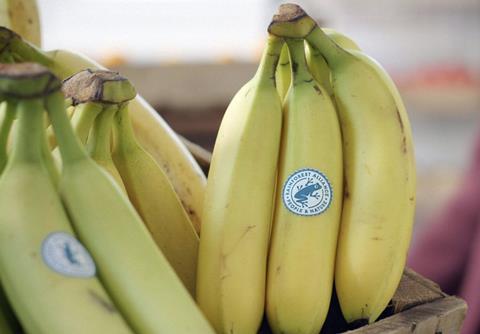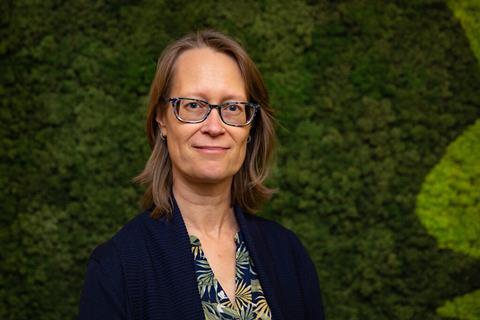Ria Stout, the group’s chief programme officer, says next year’s launch of its revised Sustainable Agricultural Standard will reduce the burden on farmers

Is the issue of over-certification a problem when it comes to the banana sector?
Ria Stout: Certification offers a robust solution to many of the issues in the banana sector, including around pesticides, biodiversity protections, addressing disease, protecting workers, improving the use of health and safety procedures. For farmers supplying several brands and retailers, they may be required to certify against different standards to fulfil specific certifications or criteria that the buyer seeks, including retailer created programmes, or certifications with different but complementary areas of focus.
The Rainforest Alliance has taken various measures in the past to reduce the potential burden of farms needing to certify with two or more certifications. In our revised Sustainable Agricultural Standard, which we will be launching in 2025, we are taking significant steps to make requirements more streamlined and resource efficient to audit, whilst remaining robust and impactful. This should help farmers to meet our requirements.
As a farmer-centric organisation, we will continue to find ways to reduce burdens and increase benefits for farmers when they certify their farms, including investigating how to support farmers being asked to certify with more than one programme.

How can the cost burden be reduced for growers? Are there ways Rainforest Alliance can avoid duplication when it comes to particular standards? How do you respond to suggestions that such labels make life even harder for growers already facing expensive audits?
RS: To lower the cost burden for farmers in reaching global markets and improving livelihoods, collective action is needed. This goes beyond individual certification adaptations to include collaboration across retailers, brands, oversight bodies, consumers, and others.
Rainforest Alliance certification has been shown to bring banana growers many benefits, including higher yields, better training and health and safety, and improvements in management of land, water quality, agrochemical use, and waste management.
We are also constantly adapting to improve our programme and will soon be rolling out an updated version of our Sustainable Agricultural Standard, based on our research and experience, evolving regulatory needs, and feedback from farmers and other partners. This will be our most farmer-centric, user-friendly and streamlined version to date.
In designing this new version, we have paid special attention to maintaining rigour and improving data quality while removing complexity and reducing the burden of implementing and maintaining certification, as well as internal inspections and audit preparation.
It is important to note that, as with all previous versions of our standard, farmers will not pay the Rainforest Alliance a fee. Where resources are allocated, it is in payment to/for audit services to the certification body of their choice (a fee that is not determined by the Rainforest Alliance) and in making necessary investments to comply with standard criteria.
What would you say to a company considering dropping the label?
RS: We continue to see growing awareness of our brand and seal and we are confident that demand will continue to grow. We also support open communication lines and would want farmers or companies experiencing challenges or doubt to contact us so that we can better support and address their issues. As an alliance, we wish to work with farmers, traders, brands and retailers to be an effective way to improve sustainability in the sector. We engage with our partners with humility and recognise there may be processes which can be more efficient, which is the reason we are evolving our standard. Continuous improvement is one of the key principles of sustainability, and we continue do to do our best to improve, to respond to the needs of farmers, whilst providing the market and consumers a reliable and trusted way to demonstrate sustainable production.



